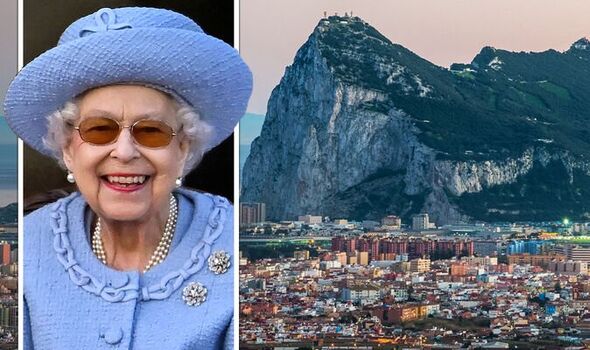More than a century has passed and there are still different ways of seeing its fall and its influence. Spain had a great empire, possibly the best that has existed since the Roman Empire and up to the present day. Possessions in half the world and a territory that reached more than twenty million square kilometers of the planet. Its loss was almost as hard as its conquests, but much of its authority is preserved, so much so that, although several territories that were colonies deny their past, history cannot hide it.
Like every conqueror who ends up falling on the opposite side, the Hispanic Monarchy had to give up territories that it had conquered years ago with blood, sweat and tears. Many others ended up becoming independent from the empire over time, and on some occasions, Spain tried to recover lost areas, but without success. As is the case with Gibraltar, which, despite being located on the Iberian Peninsula, fell into the hands of the United Kingdom more than 300 years ago.
The case of this territory, located next to the province of Cádiz, is peculiar, and although in recent years it has not led to any armed conflict, Spanish and British authorities have had their ups and downs. On August 29, the controversy came to light again after the Prime Minister of the United Kingdom, Boris Johnson, granted the status of "city" to Gibraltar, after, according to the BBC, at the beginning of the year the colony applied to be granted that recognition as part of Queen Elizabeth II's Platinum Jubilee, as did 39 other places around the world.
This status of "city" is associated with the fact of having a cathedral, university or a large population, although there are no official rules for its concession. According to EFE, historians reviewed the national archives and verified that it had already been designated as a city for the first time in 1842, during the reign of Queen Victoria, although this fact was omitted, for unknown reasons, during all these years. 180 years later, Johnson has recognized it this way again.

The 17th century had just ended when the former Spanish monarch, Carlos II, died. "The bewitched", as he was called, was the last of the House of Austria and his death generated the War of Succession to discover his heir to the throne. The war lasted twelve years, between 1701 and 1713, and left a serious dynastic conflict in Spanish territory that ended with the rise to power of Felipe V and the establishment of the Bourbon Dynasty.
While the conflict was taking place, Great Britain, one of those interested in the Spanish throne, occupied Gibraltar in 1704, taking advantage of the weakness that the Spanish empire was going through to attack this part of the Iberian Peninsula. With an attack led by George Rooke in which the British fleet attacked the enclave with 61 warships, a domain far superior to the Spanish resistance and the city fell in a few days.
The War of Succession ended with the signing of the Treaty of Utrecht on April 11, 1713, in which the British and French monarchies and other allies divided up the territories of the states of the Hispanic Monarchy. On July 10 of the same year, a second treaty was signed between the British and the Spanish, in which Gibraltar and Menorca were ceded to Great Britain.
Why did Spain recover Menorca but not Gibraltar?
From the Treaty of Utrecht, there is a clause in which "England received the fortress as a deposit, but could not deliver it to any other political power except Spain, previously negotiating with it". That was always maintained as long as the British Empire preserved its unity.
But from that very moment, the recovery of both territories was a Spanish objective. The alliance of Spain with the first French republic a few years later caused the rupture with England, already with Carlos IV in power. Menorca was under British rule for more than seventy years, fifteen under Spanish rule and another seven under French influence, until, in 1802, by the Treaty of Amiens, the island returned to Spanish hands. A luck that was not obtained with Gibraltar.
One of the attempts to recover the colony took place during The Great Siege, taking advantage of the War of Independence of the United States. But it ended with a disastrous result, and a strategy that did not work and left thousands of Spanish soldiers dead.
Previously, it had taken advantage of other occasions such as the War of the Austrian Succession (between 1739 and 1748) or the Seven Years' War, as well as later, in the Spanish-English wars before the arrival of Napoleon's troops in Spain. All ended with a vain attempt to recapture Gibraltar.
Could Gibraltar be part of Spain again?
During World War II, Franco assured that "Gibraltar is not worth even the life of a Spanish soldier", after German propaganda took advantage of the situation to bring Spain into the conflict. With those words, Winston Churchill promised that, at the end of the Great War, talks with Gibraltar would return. But the war ended, Churchill no longer ruled and the documentation was destroyed in England.
Since 1963, Gibraltar has been included in the list of territories subject to decolonization, after it was approved in 1959. Currently, there is a UN agreement in which England and Spain are asked to solve the problem. But by then, England consolidated Gibraltar as an independent state, which allowed the problem to continue to this day.